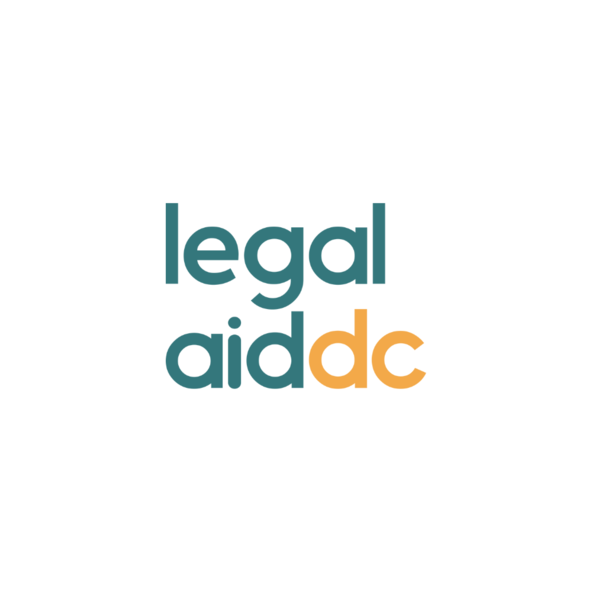
Fifty million dollars are available to save District homeowners from foreclosure. But unless the D.C. Council acts, many homeowners could be foreclosed on before the money has the chance to reach them. The D.C. Council should pass legislation to ensure that homeowners who apply for the D.C. Homeowner Assistance Fund even after September 30, 2022, are protected from foreclosure while the DC Government reviews their applications and distributes the payments. If the Council fails to act, District residents will be needlessly at risk of losing their homes.
Congress funded the Homeowner Assistance Fund through the American Rescue Act with the purpose of helping homeowners who are financially impacted by COVID to avoid foreclosure and displacement. The DC Homeowner Assistance Fund (“DC HAF”) is distinct from other homeownership assistance programs because it does not need to be repaid at any point by the homeowner. The DC HAF program is a rare opportunity to achieve several important policy goals:
- prevent foreclosures and displacement,
- provide long term housing stability,
- stabilize communities and neighborhoods,
- preserve low- and moderate-income homeownership,
- preserve property values, and
- build intergenerational wealth, which would help to narrow the racial wealth gap in the District.
However, DC HAF won't have the opportunity to meet its full potential if the very homeowners DC HAF is intended to help are foreclosed on during the application and payment process.
Current DC law pauses foreclosures on homeowners who have applied for DC HAF—but only if their applications were submitted by September 30, 2022. Homeowners who applied on October 1, 2022, or later are not protected, meaning they could be foreclosed on while waiting for the DC Government to process their applications. In fact, homeowners who are approved for DC HAF and merely waiting for payments to be issued may still lose their homes, simply because they applied on October 1, 2022, instead of September 30, 2022. The time limited nature of the protection is particularly troubling given that DC’s Homeowner Assistance Fund was one of the last in the country to open, with the full program not opening until June 22, 2022. Moreover, the September 30, 2022, deadline is grossly incongruous with the scope of DC HAF, which may have enough funds to last for years. Protecting only the earliest DC HAF applicants from foreclosure arbitrarily leaves homeowners who apply later needlessly at risk of foreclosure.
No homeowner who is eligible for the DC Homeowner Assistance Fund should be foreclosed on when there is money designated and available specifically to save their homes. The only way to ensure homeowners aren’t needlessly foreclosed on is by enacting legislation that protects DC HAF applicants from foreclosure, regardless of when they apply. Further, to ensure that homeowners at risk of foreclosure are aware that there is an option to save their homes, legislation should require foreclosing entities to notify homeowners of DC HAF. These legal protections will help prevent the displacement, loss of equity, and loss of Black homeownership that foreclosures inevitably cause.
Pausing foreclosures for homeowners who are in the process of saving their homes and waiting for the Government to respond is good public policy. Indeed, an analogous protection exists in the federal regulations that halts a mortgage lender from proceeding with foreclosure when a homeowner is applying for loss mitigation options such as a loan modification or forbearance. The goal of the federal rule is to give the homeowner a chance to resolve their delinquency before a mortgage lender can proceed with foreclosure. The District should seize the opportunity provided by these substantial federal funds and enact a local protection that effectuates the same goal—ensuring that homeowners are protected from foreclosure while their DC HAF applications are reviewed and processed. Such a protection would not be a blanket moratorium on foreclosures (the District’s blanket moratorium ended on June 30, 2022, only eight days after DC HAF launched), but rather a pause on foreclosure activity while the DC Government reviews and processes the DC HAF application.
A pause on foreclosure activity while a DC HAF application is pending is particularly important for condominium unit owners who are vulnerable to quick foreclosures with hardly any protections. Condominium associations can foreclose for unpaid condo dues after a mere 31-day notice, without a single court hearing, mediation, or any court oversight. Unlike mortgage foreclosures and property tax sale foreclosures, which generally take place under court supervision, foreclosures by condominium associations for unpaid condo dues take place without supervision by any neutral third party. Unless the Council acts, associations can now foreclose without informing homeowners about DC HAF, meaning that District condo owners may lose their homes without ever knowing that funds were available to help save their home.
In fact, condominium associations actually have much to gain with the DC Homeowner Assistance Fund. When a condo unit owner gets HAF, the arrears are paid in full, and the account is brought current. Even pre-pandemic arrears are covered. On the other hand, with foreclosure, the condominium association is only entitled to recover the most recent six months of condominium dues unless there’s money left after all the other liens are paid.
DC’s Homeowner Assistance Fund has enormous potential to preserve homeownership and build equity for District residents, particularly for Black homeowners who were hit hardest by the pandemic. But there is still much to be done to spread awareness about the program so that all who are eligible have a chance to apply. And outreach and assistance are needed for the thousands of homeowners who have started applications and have not yet completed them. Enacting protections that pause foreclosure activity while the DC Government reviews and processes the DC HAF application will ensure that funds have a chance to reach homeowners in need. The D.C. Council should act now to ensure that homeowners are not foreclosed on while they are waiting for the DC Government to consider their applications or release assistance.




